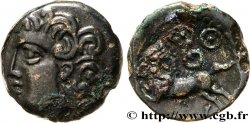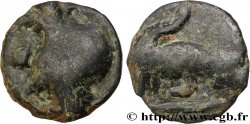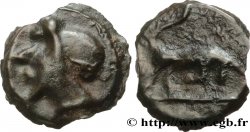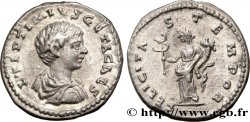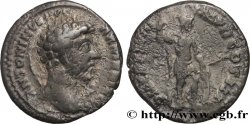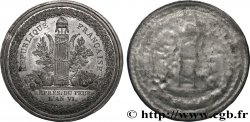v24_0943 - GALLIA - BITURIGES CUBI (Area of Bourges) Denier A / IVR à l’annelet pointé
MONNAIES 24 (2005)
Starting price : 320.00 €
Estimate : 550.00 €
Realised price : 320.00 €
Number of bids : 1
Maximum bid : 436.00 €
Starting price : 320.00 €
Estimate : 550.00 €
Realised price : 320.00 €
Number of bids : 1
Maximum bid : 436.00 €
Type : Denier A / IVR à l’annelet pointé
Date: c. 60-50 AC.
Metal : silver
Diameter : 15,5 mm
Orientation dies : 2 h.
Weight : 1,97 g.
Rarity : R3
Coments on the condition:
Denier frappé sur un flan large et bien centré. Faiblesse de frappe sur la partie inférieure du revers. Patine brillante d’ancienne collection
Catalogue references :
Obverse
Obverse legend : A, DEVANT LE FRONT.
Obverse description : Tête à gauche ; les cheveux disposés en trois mèches ; grènetis autour.
Reverse
Reverse legend : IVR RÉTROGRADE.
Reverse description : Cheval sexué libre au pas à gauche ; au-dessus un annelet pointé ; légende entre les jambes.
Commentary
Cet exemplaire a la particularité d’avoir un A devant le front au droit et un annelet pointé accompagné de la légende IVR au revers. Cette combinaison de droit et de revers semble n’être connue que depuis la publication du trésor de Moulins-sur-Céphons. Le revers correspond au n° 4117 du LA TOUR, qui n’a pas le A au droit. Exemplaire de poids relativement lourd ; seulement quatre exemplaires avaient un poids supérieur à 1,95 pour ce “type 3”.
This example has the particularity of having an A in front of the obverse and a pointed annulet accompanied by the legend IVR on the reverse. This combination of obverse and reverse seems to have only been known since the publication of the Moulins-sur-Céphons treasure. The reverse corresponds to no. 4117 of LA TOUR, which does not have the A on the obverse. A relatively heavy example; only four examples had a weight greater than 1.95 for this “type 3”
This example has the particularity of having an A in front of the obverse and a pointed annulet accompanied by the legend IVR on the reverse. This combination of obverse and reverse seems to have only been known since the publication of the Moulins-sur-Céphons treasure. The reverse corresponds to no. 4117 of LA TOUR, which does not have the A on the obverse. A relatively heavy example; only four examples had a weight greater than 1.95 for this “type 3”








 Report a mistake
Report a mistake Print the page
Print the page Share my selection
Share my selection Ask a question
Ask a question Consign / sell
Consign / sell
 Full data
Full data